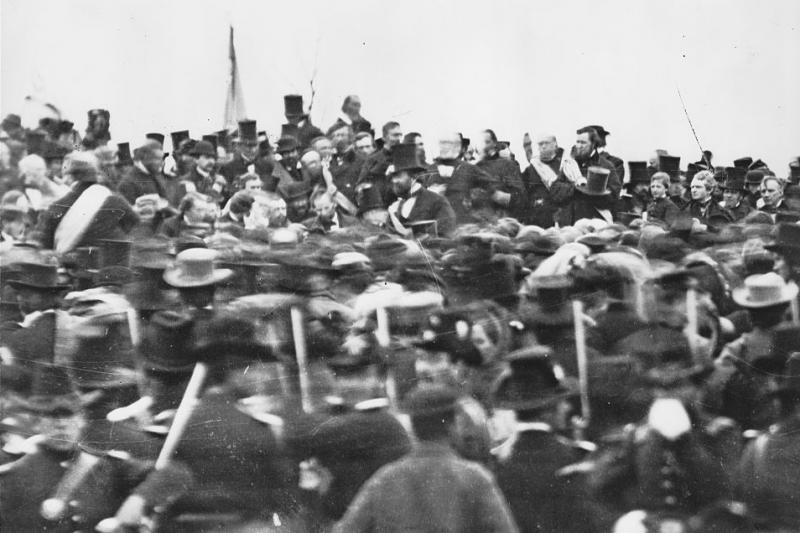Four and a half months after the Battle of Gettysburg, a crowd converges to dedicate the Soldiers' National Cemetery, which will be the final resting place for thousands of Union soldiers killed in the battle. The keynote speech was to be delivered by Edward Everett, a politician, Harvard instructor, and noted orator. Everett speaks for more than two hours, but the event is instead remembered for a brief, two-minute speech delivered by President Abraham Lincoln after Everett's speech. In the Gettysburg Address, Lincoln ties the purpose of the war to the nation's Declaration of Independence, the continuing cause of freedom, and a "government of the people, by the people, for the people." In concert with his Emancipation Proclamation earlier in the year, Lincoln's short address redefines the Northern cause to include the preservation and expansion of freedom, in addition to reuniting the nation. While contemporary observers witness a short speech, and in some cases have trouble even hearing it, the Gettysburg Address is now remembered as one of the greatest speeches in American history, owing to its eloquence and historic significance.
Thursday, November 19, 1863


